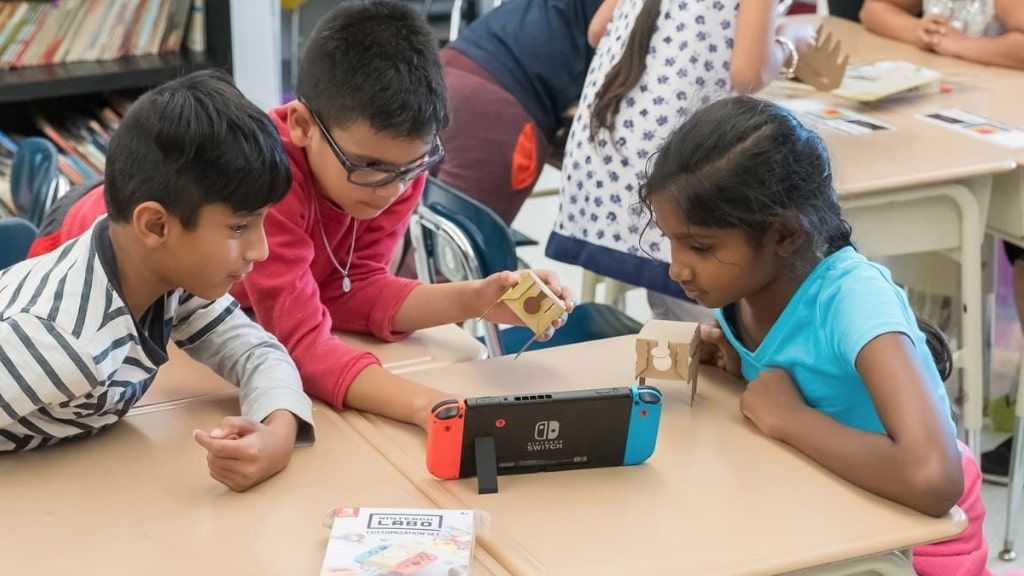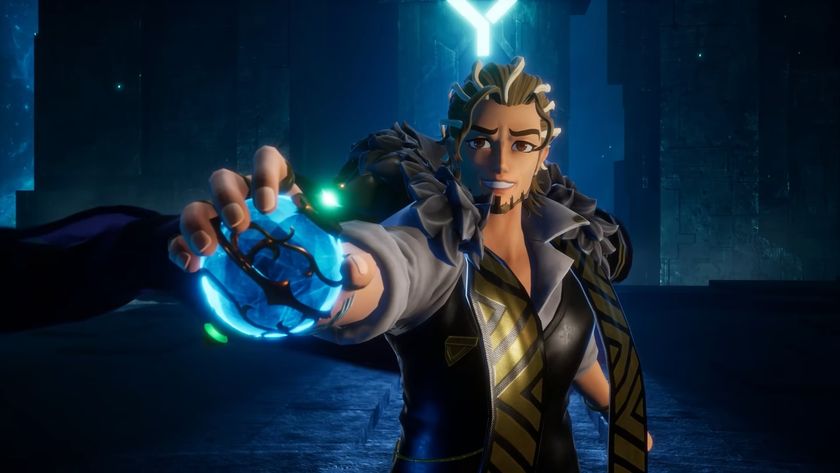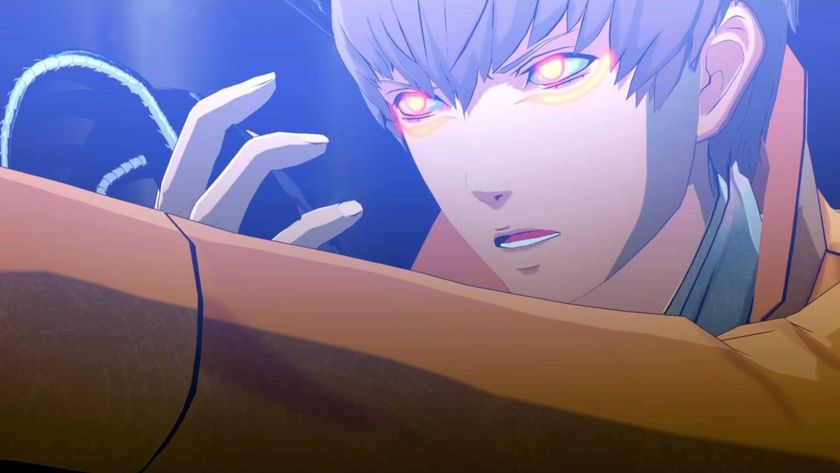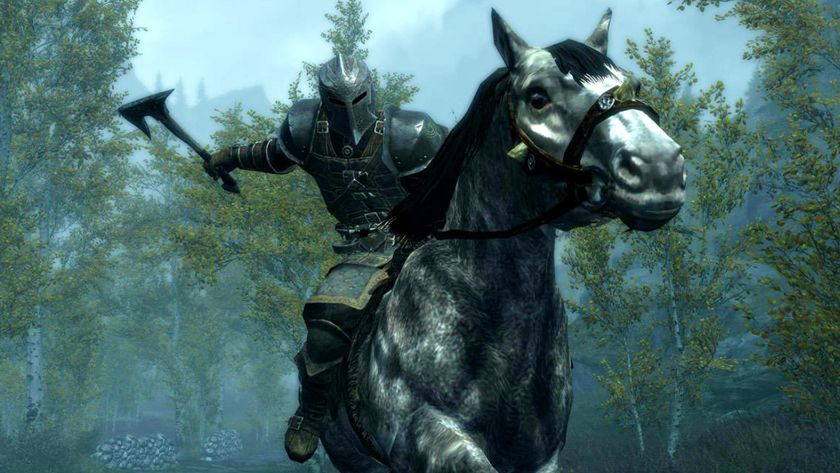How video games are making the world a better place in 2019
Don’t believe the scaremongering, video games are a force for good, and you only have to look to this year to see why

2018 may have been a good year for video game releases, but it was also a year in which the industry’s reputation took an undeserved hit. On top of the Trump administration's continued scapegoating of the medium, the rise of Fortnite has led to heightened fears about the impact of games on children, culminating with the World Health Organisation labelling video game addiction as a mental health disorder.
The news often feels like it's trying to tell us that the world is bad and video games are partly to blame, then, but a closer look to the future offers a more hopeful message. Video games are good, actually, and they can help to make the world even better. This year, games are being used as a tool to educate, unite, and build a brighter future, well beyond their function to offer pockets of escapism and entertainment to those who play them.
Let’s begin with the battle royalephant in the room. Fortnite’s meteoric surge in popularity throughout 2018 may have introduced an entirely new audience of players to the world of multiplayer gaming, but that success was twinned with a sensationalised response by the mainstream media, bouncing off the understandable worries of parents concerned about their child’s latest obsession. That debate over screen time and age ratings is still playing out, but - whether you love it or hate it - Fortnite has the potential to be a positive platform in 2019, when so many other online ‘third places’ like Twitter and YouTube are falling short.
Take the Climate Fortnite Squad, a group of scientists who stream and play Fortnite together while discussing climate issues and interviewing key topical figures like the Director of NASA’s Carbon Cycle and Ecosystems Office, educating an audience of Fortnite fans through the initial draw of playing a popular video game together.
After finding success last year, the Climate Fortnite Squad has kicked off 2019 with the launch of a new Climate Gamers website, Twitch channel, and even more streaming plans beyond Fortnite designed to evangelise the climate conversation to the younger generation. Right now, they’re edging towards 1000 subscribers on Twitch, and this year will see them continuing to expand on that platform, working to beat climate change, one Victory Royale at a time.
Games as a (public) service
Climate Fortnite Squad isn’t the only example of video games taking steps to educate people about the biggest issue of our time. Eco is an Early Access survival game, due to release this year, in which players must build a civilisation from scratch without ruining the planet in the process.
Set in a reactive ecosystem based on our very own, you’ll have to gather scientific data to propose sustainable laws, work with others to conserve and protect the surrounding environment, and develop an economy that doesn’t threaten to send everything into climatological meltdown. And developer Strange Loop Games is just one of many studios attempting to resuscitate edutainment for a modern audience in 2019, a genre of games that teaches its player base about real-world topics through the lens of interactive entertainment.
Sign up to the 12DOVE Newsletter
Weekly digests, tales from the communities you love, and more

This year, there’s also Mars Horizon, an upcoming space simulator developed in collaboration with the UK Space Agency, where players must manage an entire space exploration campaign with all the real-life particulars that it entails. Meanwhile, Nintendo has officially partnered with the Institute of Play to bring its Labo cardboard kits to classrooms across America this school term, all in an attempt to engage young children with basic principles of design technology. Learning through play is becoming an increasingly popular philosophy in education, and Labo has already proven itself appealing with kids, so this partnership makes perfect sense. Nintendo tested a similar program in Canada last year to positive results, and you can expect to see more of its impact to come to fruition throughout 2019.
"Video games can positively impact lives in ways most of us can neither see nor comprehend."
Estimated at hundreds of billions of dollars in net worth, the games industry is also continuing to make good on its opportunity to support noble causes in 2019. Already, Games Done Quick, a non-profit that organises charity speedrunning events across America, has raised $2.4 million for the Prevent Cancer Foundation, with its next fundraising jam taking place in June. In March, Gamers for Giving will be holding their annual extravaganza where thousands compete and play together to raise money for Gamers Outreach Foundation, which provides gaming equipment for children coping with long-term treatment in hospitals.
Meanwhile, the 2019 Games For Change Festival will bring lawmakers, developers, entrepreneurs, and nonprofits together to “share and learn how they can leverage the power of games for civic engagement.” These organisations, alongside the likes of Extra Life, Humble Bundle, and the AbleGamers Charity (to name just a few more), will together make new strides in supporting important philanthropic projects in 2019.

And, speaking of AbleGamers, thanks to an eight-year-old piece of legislation that’s finally coming into effect, this will also be the first year in which games in the US will be required by law to have their internal communications (i.e. user interfaces, on-screen text) accessible to people with visual or hearing impairments. This is thanks to the work of the International Game Developers Association, which has been lobbying for greater communication accessibility in the games industry since 2003.
The 21st Century Communications and Video Accessibility Act 2010, as it’s officially known, also requires that “people with disabilities must be involved in some capacity in the design or testing process” of each title from 2019 onwards, which itself is another step on the ladder in the path to making games more inclusive as a platform.
Play to win
And while the World Health Organisation’s conclusion on gaming addiction may have cast a dark cloud over the scientific conversation around gaming, the debate over their neurological impact is always evolving, though you’re less likely to hear about the more positive findings when they don’t make quite as compelling a news headline. At the beginning of 2019, for example, a newly released study from the Memorial University and Université de Montréal revealed that video games can maintain and even improve the cognitive capabilities of the elderly, as evidenced by the Silver Snipers, the world’s oldest esports team, who recently told CNN that their competitive tours around Europe are providing them with healthier and happier lifestyles in their senior years.

Even putting all of the evidence to one side, it’s hard to deny that the people, projects, and passions of the video game industry won’t continue to be a force for good, with history acting as our most reliable prophet. 2018 alone gave us dozens of the kind of unexpected, uplifting anecdotes that pop up throughout the year without fail, like Ninja Theory donating $50,000 of its Hellblade: Senua’s Sacrifice profits to Mental Health America, Microsoft releasing the world changing Xbox Adaptive Controller, or Bethesda previewing Fallout 76 to a 12-year-old with terminal cancer, and I have every faith that we’ll be hearing similar examples of heartwarming stories over the next 12 months.
Video games can positively impact lives in ways most of us can neither see nor comprehend, in spite of their critical growing pains that undoubtedly need addressing in the long term. These hurdles, from triple-A predatory gambling practices to the aforementioned issue of gaming addiction, are real and unignorable. But, like in any emerging art form, they’re problems to solve, not excuses to dismiss the medium outright.
As a beacon for technology and culture, video games are an irreplaceable cog in the workings of modern life for the 21st century and beyond. The sporadic, hyper-reactive accusations by those who suggest otherwise would do well not just to recognise their value to society, but learn how we might use them more effectively to bring about the kind of change that we’re already seeing in 2019.
For more on how video games can impact the world and the people who play them, here's the scientific explanation on why they're good for our brains.
I'm GamesRadar's Features Writer, which makes me responsible for gracing the internet with as many of my words as possible, including reviews, previews, interviews, and more. Lucky internet!

Palworld dev says the studio went dark for months because "the team was getting burnt out from all the social media stuff, I was getting burnt out, our CEO was under attack in Japan"

Metaphor: ReFantazio had to dial back an early battle system inspired by a notoriously brutal 2003 JRPG, because 20 years later, players found it "irrational" and "just not fun"












